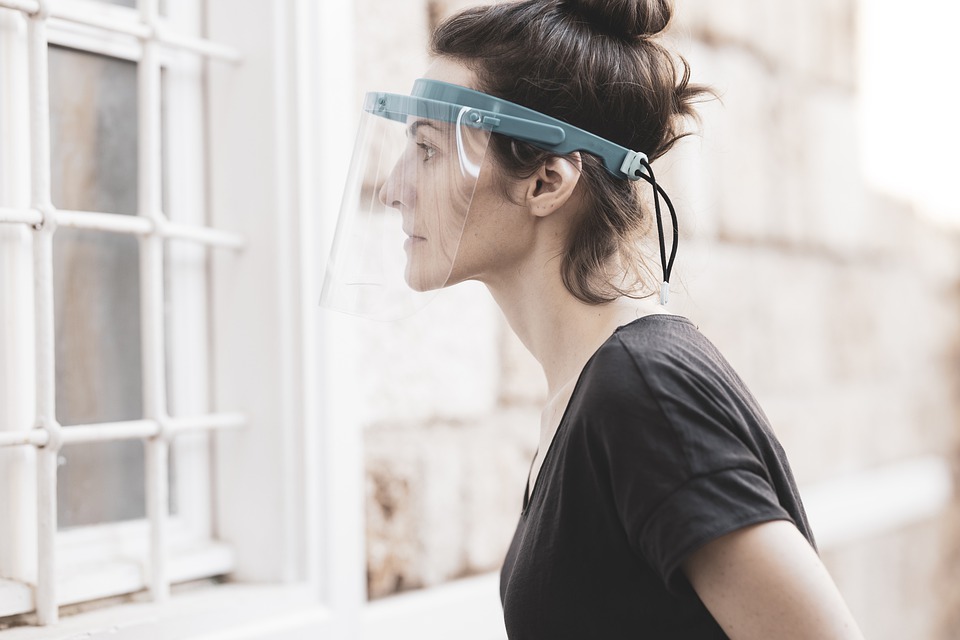Summer is perfect for spending time outdoors, but it’s also peak allergy season. While allergens can be expected outside, they can become even more troublesome indoors. The last thing you want is to have itchy eyes and a runny nose while relaxing at home, so take some time to protect your space from common allergens. Here are a few ways to start.

Clean Regularly
One of the best ways to combat allergens in your home is to clean regularly. Try to clean your home at least once a week, and be intentional about how you clean to prevent dust and other particles from building up.
When dusting, use a damp microfiber cloth and wipe from top to bottom to ensure you trap and eliminate dust instead of spreading it around your home. You should also dedicate special attention to your floors, as allergens can easily hide in carpets and rugs. Try to vacuum or sweep your floors once a week, and also be sure to clean out of reach areas in your home. Door frames, ceiling fans, curtains, and blinds are places dust and allergens can easily accumulate, so make sure these areas haven’t been neglected.
Bedding can also be a popular place for dust mites to burrow, so pay close attention to your mattress and wash your pillowcases, sheets, and bedding at least once a week with hot water. Along with cleaning, you can use dust-proof or allergen-blocking covers for some extra protection.
Check Your Filters
Another important step in making your home allergen-free, is ensuring your home is properly ventilated. Filters can be easy to neglect, but make sure to check these in your individual air conditioners and your central heating, ventilation, and air conditioning system (HVAC).
When examining your filters, check that they are clean and in good shape, but also ensure they are the correct ones for your needs. To combat allergens, try to use high efficiency particulate air filters (HEPA) for added protection. This type of filter can catch smaller particles like mold, bacteria, and pollen that regular air filters might miss. For the best results, replace your filters every 90 days, and change them with each new season.
Allergy-Proof Your Home
If you suffer from severe allergies, it might be worth making some home improvements to help overcome these issues. Being proactive and designing your home with your allergies in mind can make your life more pleasant and also increase your home’s resale value.
To reduce any hidden allergens and dust, you can replace carpeted areas with hardwood or vinyl flooring for easy cleaning. You can also install a smart thermostat to control the temperature of your home and monitor indoor air quality (IAQ). Some models can even show you information about outdoor air conditions, so you can make informed decisions based on the air quality inside and outside of your home.
A whole-house air filtration system might be another helpful addition, as this filters out harmful, airborne particles. This works with your HVAC system to remove allergens from your entire house, and can be a wise, protective measure against allergies.
Depending on what home upgrades you make, these projects can be pricey. Remember, these improvements are an investment in both your health and home, and can provide long-term value. Additions like hardwood floors, a whole-house filtration system or humidifier, and ventilated bathrooms can be appealing selling points for future homeowners, and can improve your home’s functionality.
For allergen-specific upgrades like an air filtration system, you’ll need to hire a licensed HVAC technician for proper installation. Luckily, there are many ways to finance these renovations, like getting a home equity loan or using a credit card. A nice advantage to using your home’s equity is that you can deduct the interest for home improvements, and can use the money for any purpose.
Block Outdoor Allergens
Reducing indoor allergens is already tough enough, but dealing with the influx of outdoor allergens coming into your home is another challenge. Although it’s tempting to open your windows for some fresh air in the spring and summer months, try to keep them closed to prevent pollen from getting into your home.
Instead, run your air conditioner and try to maintain a cool temperature in your home to reduce humidity, which creates a welcoming environment for mold and dust mites. It’s also easy to bring outdoor allergens into your home from your shoes, so try to remove them before walking through the door to prevent grass or other particles from spreading.
If you have pets at home, make sure to brush their fur regularly to reduce shedding and pollen in their coats. Also, use lint rollers to remove any pet hair or dander from your furniture and clothes. It’s wise to bathe them about once a month as well to reduce any dirt or allergens they might bring in.
Allergies can be annoying, and your home should be a refuge from bothersome symptoms. Luckily, with consistent cleaning and preventative measures, you can reduce the allergens in your home and even prevent them from coming in.